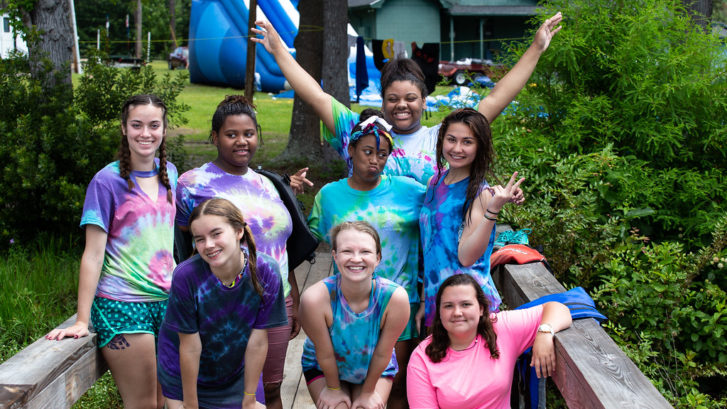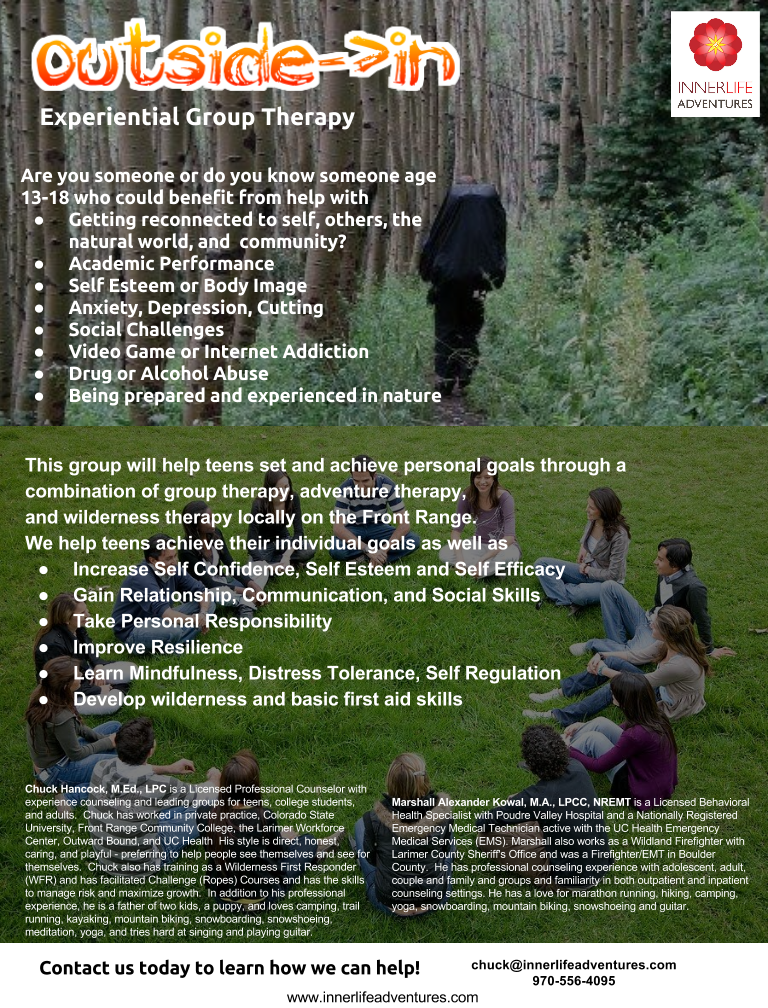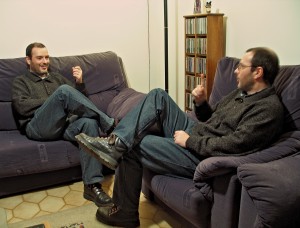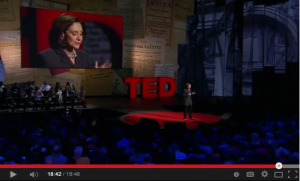Here’s an article I wrote recently published in the fall edition of the Yoga Connection magazine.
The Remedy is the Experience
And experience is magnified in relationship
Often I hear from people, “What good is it to talk about things?” And I have to agree with that sentiment on some level. Talking about things is a good start. It helps you gain clarity and understanding about whatever it is you are facing, but it often falls short of actually creating any change. It’s the difference between reading a book on self-help and actually doing it, or reading a book on spirituality and actually practicing it.
When we engage with only the mind, we are neglecting a good portion of the rest of our system – like our body, emotions, nervous system, intuition, and what is showing up in our interactions in relationships. In this culture, I feel we have placed a premium on intellectual thought while discounting all other forms of learning and expressing, resulting in our ability to think ourselves in circles rather than actually breaking out of patterns of thought that keep us stuck. To actually change, it takes engaging your entire system possibly starting with intellectual learning, followed by experience combined with awareness to witness ourselves in our experience to fully anchor it in our being.
For example, someone I know well likes to do everything herself. Well, she may not like to, but it is much easier for her to take on super human amounts of work and do it herself rather than ask for help. Do you know anyone like this? We’ve talked about this many times over the years, she is aware of it, but there is some deep seated belief that it does no good to ask for help because it won’t be there anyhow – there’s probably no such thing as help. It’s just a myth. And even if there were, she wouldn’t want to be judged for or inconvenience someone in asking. No amount of talking about this and knowing intellectually where it may have come from has helped. It’s just another thought, competing in her mind with all the other millions of thoughts, why would she believe this one over any other?
Luckily experience came to the rescue. Recently, she was able to have the experience of being supported by multiple people in community, over a period of 10 days. So as quickly as her mind wanted to doubt it, there was another experience proving her mind wrong. Now it is not just a conversation about receiving help, but she has evidence, by many people, over a period of time constantly reinforcing the new possibility that there actually is such a thing as help, and most importantly she knows what it feels like to receive help without judgment. Now it has moved from just another thought in her mind to something that is actually real and tangible in her system because she has experience and she knows what it feels like to receive help.
As I mentioned above, experience on its own is not enough either. If we are too busy in our head, planning our next move, evaluating, judging, worrying, or regretting, we are missing the experience. One way to escape from this is through present moment awareness – mindfulness, but even this term is starting to feel heady to me. Instead, just getting into the heart-space of allowing, accepting, celebrating, witnessing and enjoying every moment with playful curiosity without trying to change or judge it allows us me to be more present to our experience. Yes, that is mindfulness, but it is easier to accomplish when coming from the heart, rather than the mind and engaging with the heart gets us about 14” farther into our body.
In this same week referenced above, we had our kids present, which in the past has caused me to be on edge about what they were doing, how much noise they are making, who they are interrupting and so on. But this time we found the space to allow them to be kids, and so did all the other adults there. This was a huge lesson for me that if we can allow the kids to be fully themselves and do no wrong, what happens when we allow each other and ourselves to be like that too? Now don’t get me wrong, we are not the permissive anything goes parents, there are directions and boundaries for them clearly. The difference being we didn’t treat what they were doing as wrong when we asked them to do something else. It is subtle, but there is a definite felt difference there of allowing their being to be, and appreciating them, then redirecting behavior, rather than telling them they are wrong.
And this was a corrective experience for me: shifting from trying to control to accepting and allowing and experiencing how okay it was. So much of my life I’m worried about if I’m doing things “right” or being “acceptable” which saps my energy. Again, by being a part of a circle of people who allow my kids, and myself to just be, to make mistakes, to say the wrong thing, to look stupid, to be fully human, and still fundamentally okay, I now have that experience, which is worth at least 100,000 positive affirmations, mantras, or the like. It is a corrective experience that starts to override all the countless experiences at work, at school, with parents, and with “friends” where it wasn’t okay to simply be me. And at the same time they give us the gift of acceptance, the same circle of people can also redirect us when we get too far out of bounds just as we do with our kids.
“The next Buddha will not take the form of an individual. The next Buddha will take the form of a community; a community practicing understanding and loving kindness, a community practicing mindful living. This may be the most important thing we can do for the survival of the Earth”.
~ Thich Nhat Hanh
On the way home from this trip, I heard a kids joke: “What did the triangle say to the circle? – You’re pointless.” And that is a good thing! Being supported in an accepting community of people holds so much power, without the sharp points that leave us wounded.
I hear many people talking about building community these days, but I wonder if we are failing to recognize the community we already have by not fully engaging in it. How well do you know the people you work with, the people in your yoga class, the people you see at the grocery store, your neighbors, and all the others in your life? How much to you allow you to be fully you, honest, open, and vulnerable with others in your life? If we are neglecting the community all around us or holding ourselves back, we are missing out on so much support, so many reflections, so much priceless experience.
As a sister of mine is fond of saying, “It’s all done with mirrors.” If we are alone, the mirror is colored and distorted by our own thoughts and beliefs. If we are fully engaged in honest open hearted relationship with others, we gain experiences and mirrors to see ourselves more clearly and help us get out of ourselves and actually change.
As we inhabit our body with increasing sensitivity, we learn its unspoken language and patterns, which gives us tremendous freedom to make choices. The practice of cutting thoughts and dispersing negative repetitive patterns can be simplified by attending to the patterns in the body first, before they begin to be spun around in the mind.
– Jill Satterfield
So let’s seek out experience, actual human experience. Not just living theoretically through books or vicariously through the TV. We have an amazing sensing machine that we don’t always fully inhabit. Engaging life fully embodied is an entirely different experience! Let’s back into our bodies and all our senses, engage with our breath, and each other fully, deeply, and lovingly to do the best we can and get the most out of our short time here. As Alan Cohen said, “You can be helping many people, but if you are not helping yourself, you have missed the one person you were born to heal.” And that comes through human experience.
~chuck
What do you think? Better yet, what do you feel? What do you experience? Let’s continue the conversation! You can find me at www.innerlifeadventures.com or email [email protected]. Want to meet? Here’s how.
Chuck Hancock, M.Ed, LPC is a National Certified Counselor, Licensed Professional Counselor, and a Registered Psychotherapist in the state of CO. He has completed comprehensive training in the Hakomi Method of Experiential Psychotherapy, a mindfulness mind-body centered approach. Chuck guides individuals and groups in self-exploration providing them with insight and tools for change. He also incorporates nature as a therapy tool to help shift perspective and inspire new patterns.




 1. People who go to therapy are not crazy. You are not crazy.
1. People who go to therapy are not crazy. You are not crazy.  reflections of what you are saying, what it seems like you are saying that you are not aware of, and questions to help you get more clear, but your life is yours to live.
reflections of what you are saying, what it seems like you are saying that you are not aware of, and questions to help you get more clear, but your life is yours to live.



